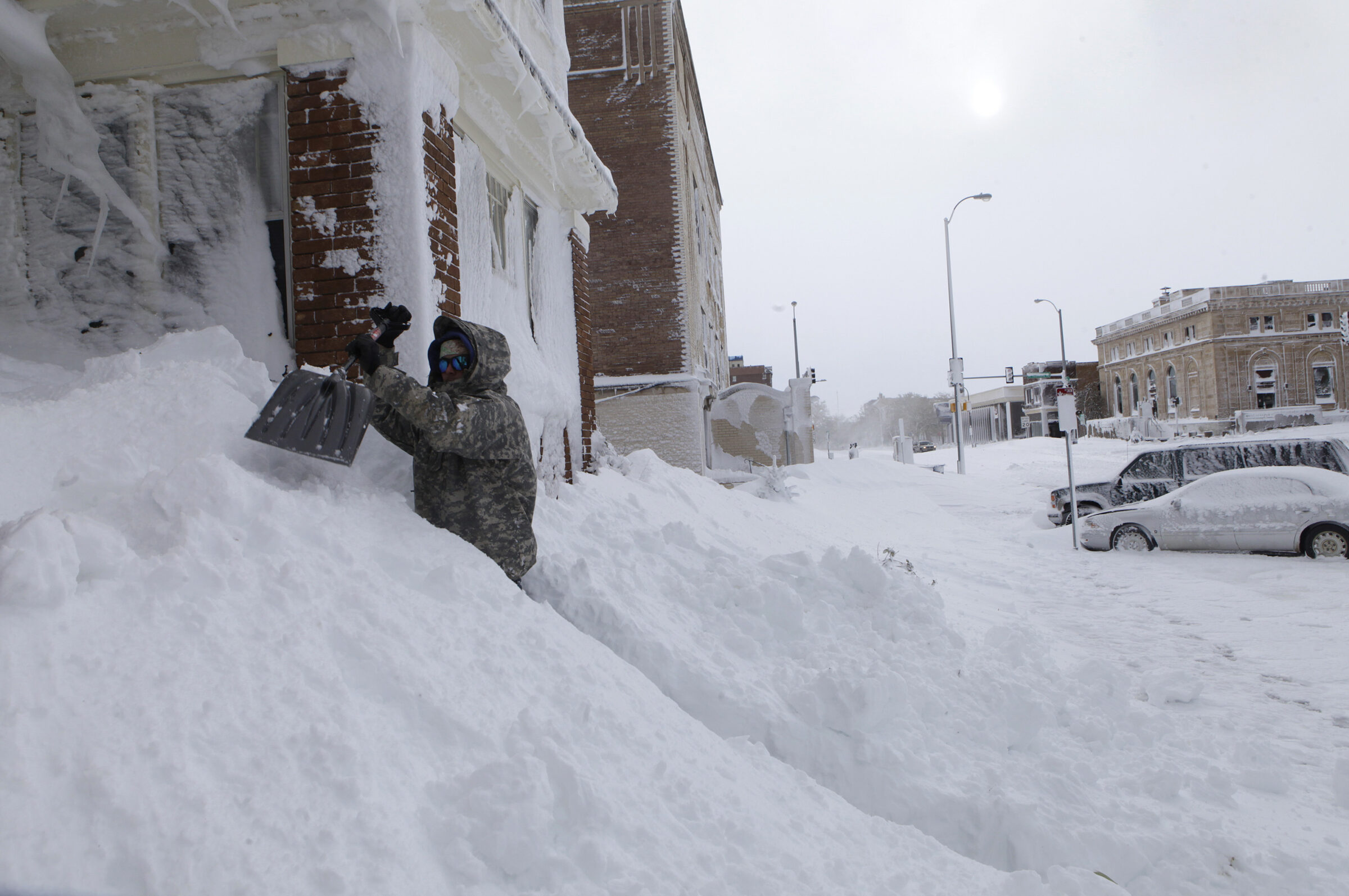
Chad Hoffman clears snow from the entrance to his apartment building Saturday morning in Rapid City. The drift in front of this building reached more than 4 feet high as Winter Storm Atlas pounded the city.
Turn back the calendar to October of 2013. A bone-soaking rainstorm came first, then the moisture froze into multiple feet of snow, all compounded by high winds. October of 2023 marked ten years since Winter Storm Atlas ravaged western South Dakota.
Our community wasn’t prepared for a blizzard so early in the season. Animals hadn’t yet grown their winter coats. When the storm cleared, ranchers faced a devastating scene―thousands of livestock animals had died of hypothermia and exhaustion.
In response to the disaster, the Black Hills Area Community Foundation established the Rancher Relief Fund, in partnership with the South Dakota Cattleman’s Association, Stockgrowers Association, and Sheep Growers Association, to compensate for livestock losses. Donations from around the world allowed the Foundation to direct over $5 million to severely impacted producers.
Seven years after Winter Storm Atlas, the Foundation waged a hyper-local response to the coronavirus pandemic by filling critical resource gaps, like expanding internet hotspots for students and supporting local mask production. Now, Carrie Robley, BHACF Director of Community Impact, is taking a refreshed look at emergency planning to ensure the Community Foundation is prepared for the next disaster.
In 2023, Robley joined a cohort of Midwestern foundations called the Philanthropic Preparedness Resilience and Emergency Partnership. The group collaborates on best practices and resources for disaster recovery and response. Carrie met with the group in Kansas during a summer conference. The members shared resources for mitigation and prevention, in addition to tools for waging a short-term response.
With a pulse on local needs, the Foundation is well positioned to provide targeted support during the next emergency. “Since we are rooted in the core of the community, we can build a response from the inside out, considering the community’s local resources and history,” Robley said.
The Foundation is also uniquely equipped to rapidly adjust its plan when urgent needs change or new needs arise. This agility helps the Foundation adapt to meet pressing needs, often before other support organizations can shift their operations to respond.
Disasters bring destruction, but they also provide an opportunity to “gather for good” as one community, Robley said. Using lessons learned from the Winter Storm Atlas and the coronavirus pandemic, the Foundation will continue to gather resources for good and direct crucial support to those who need it most.